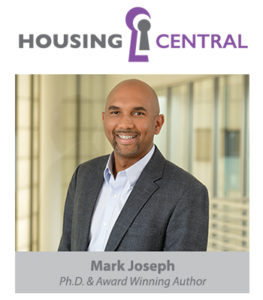Guest blog post by 2019 Housing Central Keynote Dr. Mark Joseph
Mixed-income housing has become popular across North America and Europe as a way to accomplish multiple goals concurrently: leverage private sector capital and capacity to produce quality affordable housing, produce market-rate housing to meet the increased demand for urban living, revitalize depressed neighbourhoods and create socio-economically integrated housing and communities. The mixed-income approach is a core element of Canada’s National Housing Strategy. Housing associations and real estate developers across Canada are increasing their mixed-income portfolios and building their experience and expertise on this housing strategy.
My colleagues and I have been studying mixed-income developments across the U.S. for the past 15 years. While we have found positive outcomes such as the production of high-quality housing, increased neighborhood safety and stability and high resident satisfaction with mixed-income housing, there have also been high levels of displacement, significant social friction and limited impacts on the economic mobility of low-income households.
How can we better ensure that the most vulnerable residents of society benefit from mixed-income housing development? How do we create mixed-income communities that have a positive impact on residents of all income levels and social backgrounds and contribute to a more tolerant, cohesive society?
We believe that the keys to success include establishing an explicit shared vision for an inclusive and equitable mixed-income community, clarifying roles and responsibilities across various stakeholders for promoting inclusion and upward mobility, building skills and capacity among developers, property managers and others to navigate the complexities of a mixed-income environment, implementing intentional strategies to elevate resident voice and sense of belonging, connection and self-agency and cultivating a learning culture with a commitment to continuous improvement. Much has been learned from a couple decades of mixed-income policy and practice, now is the time to raise the bar for mixed-income housing to have a much greater impact on inclusion and equity.
Mark Joseph, Ph.D. is the Leona Bevis and Marguerite Haynam Associate Professor of Community Development at the Jack, Joseph and Morton Mandel School of Applied Social Sciences and the Founding Director of the National Initiative on Mixed-Income Communities at Case Western Reserve University and will be the keynote speaker at BCNPHA’s #HousingCentral Conference on November 17. You can register at conference.housingcentral.ca.
